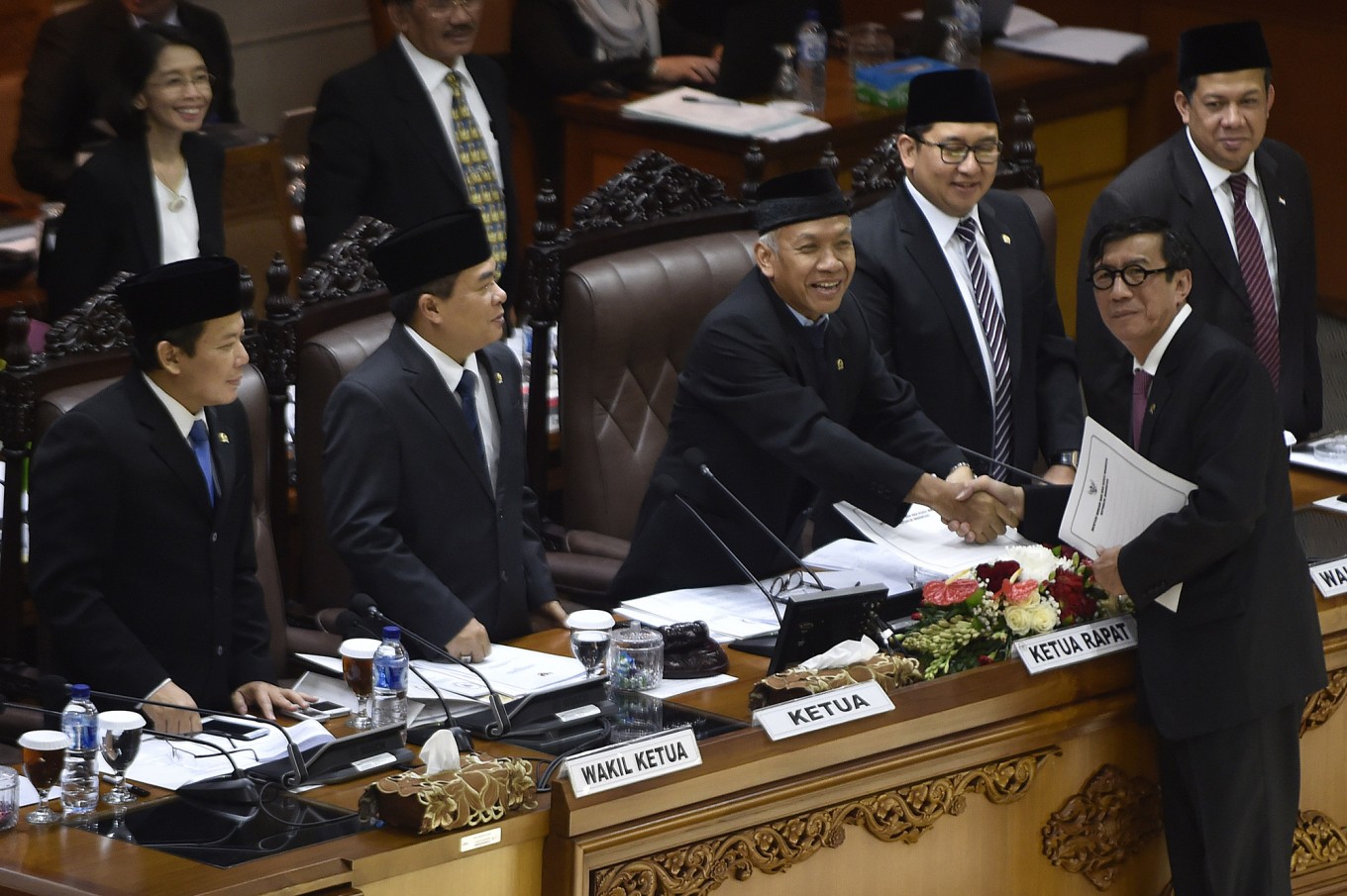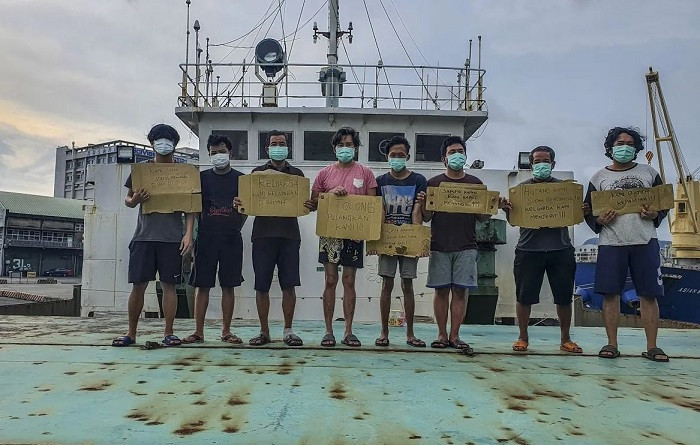Popular Reads
Top Results
Can't find what you're looking for?
View all search resultsPopular Reads
Top Results
Can't find what you're looking for?
View all search resultsCOMMENTARY: Government pulling back from antigraft commitment, again
Change text size
Gift Premium Articles
to Anyone
L
aw and Human Rights Minister Yasonna Laoly may not have the eloquence of a natural orator, but when defending his policy to grant Independence Day remissions to 82,000 prisoners in a media briefing last week, he used well-chosen words that sounded almost like he was giving a eulogy.
“They are packed into small, terribly overcrowded cells. Some have to sleep standing with their backs bent forward. Others have to take turns to sleep. And they are all sons of the nation, just like you. No difference.”
Trying to evoke empathy, he added, “They can’t go anywhere. They can’t go to shopping malls or take a leisurely stroll.”
Yasonna wants to see graft convicts, drug lords and terrorists as well as “ordinary” detainees leave their stinky cells sooner than judges ordered because prisons across the country are unbearably overcrowded, to the point that the government spends over Rp 1 trillion (US$76 million) a year just on their food.
Receiving this year’s Independence Day remissions were 27 terrorists, 428 graft convicts and 12,161 drug criminals.
According to official figures, penitentiaries nationwide were designed to accommodate 119,000 inmates, but now they house about 197,670 — of whom 81,200 are drug convicts and 3,630 are graft inmates.
An Indonesian Democratic Party of Struggle (PDI-P) politician, Yasonna has been in the spotlight lately for pushing the plan, despite fierce public objections, to revise Government Regulation (PP) No. 99/2012, which he regards as the piece of legislation primarily to blame for the appalling prison conditions.
Advocates have resisted his plan because the regulation prescribes tight prerequisites for inmates of extraordinary crimes — corruption, drugs and terrorism — to obtain remissions. It was designed to create a greater deterrence effect for would-be plunderers of public funds.
Even with the 2012 regulation still in place, the ministry is already very generous about remissions. Among the graft convicts granted sentence cuts on this year’s Independence Day were former Democratic Party politician Muhammad Nazaruddin and his wife Neneng Sri Wahyuni, who received five- and six-month remissions, respectively. For Nazaruddin, who is serving a 13-year jail term, it was his second discount so far this year. On the Idul Fitri holiday last month he received 45 days’ remission.
Terror convict Abu Bakar Ba’asyir, who has been serving a 15-year sentence since 2011, got three months’ reprieve.
The Susilo Bambang Yudhoyono administration introduced the 2012 regulation based on a common conviction about the menace that the three extraordinary crimes pose to the nation.
If Yasonna gets his way, graft convicts, drug criminals and terrorists will be entitled to remissions just like prisoners of “general crimes” such as goat thieves and wallet snatchers. But because corruption and drugs have always involved big money and bigwigs, the regulation has been constantly targeted.
Back in 2013, Yusril Ihza Mahendra — a lawyer and a former law and human rights minister — filed a petition with the Constitutional Court on behalf of three convicts demanding that the regulation be dropped on the grounds that it discriminated against extraordinary crime inmates.
To the public’s relief, the court rejected Yusril’s motion and ruled in favor of the Law and Human Rights Ministry’s argument that the regulation in no way deprived drug, graft and terror convicts of an equal chance to receive remissions. The ministry also stood firmly behind the principle that drugs, corruption and terrorism were extraordinary crimes whose eradication required extraordinary measures.
Hilariously, Yasonna now uses exactly the same argument that Yusril unsuccessfully put forward to shoot down the regulation three years ago. He is also trying very hard to convince the public that giving such convicts an equal chance to secure remissions would help relieve overcrowded penitentiaries nationwide.
One can imagine Yusril laughing out loud upon discovering that he may not even have to lift a finger to see the disputed 2012 regulation revised in his clients’ favor if Yasonna succeeds in his bid.
A crucial point that Yasonna wants to scrap from the disputed regulation is the clause on “justice collaborator” status, which is usually accorded to suspects who are willing to tell all in court. In return, they are entitled to a more lenient sentence.
The status was created with the intention of helping law enforcement bodies catch the bigger fish in cases involving powerful politicians, government bureaucrats and politically wired businesspeople. It is understood that, often, the people the KPK agents arrest in sting operations are only the field operators of a larger plot while the big players remain at large.
It’s intriguing that the number of graft inmates accounts for less than 3 percent of all prisoners crammed into our overcapacity penitentiaries, but the government is so gung ho about giving them early exits. For example, why not focus on revising drug laws instead, to allow for the relocation of drug users from penitentiaries to rehab centers?
The Institute for Justice Reform estimates that detained drug users total about 60,000, or 30 percent of prisoners. This means that if they are moved to rehab centers, it would significantly ease pressure on penitentiaries.
Yasonna’s plan demonstrates the government’s half-hearted political commitment to eradicating corruption that has been blamed for the numerous ills plaguing the country. It will decimate the deterrence effect expected from harsh punishments.










